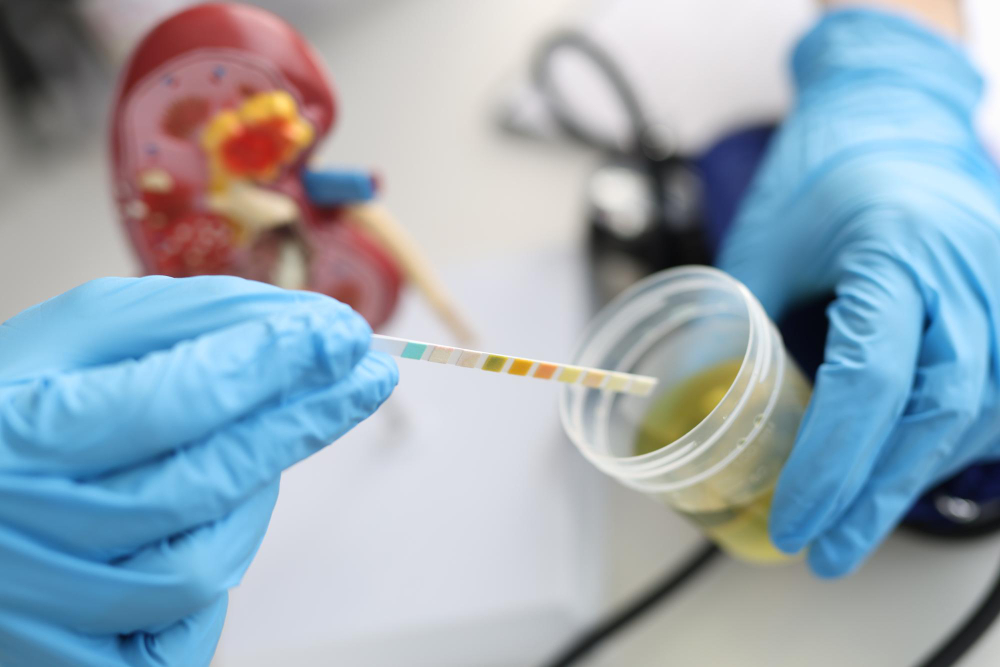Why Is There Sediment in My Urine?
Introduction:
Finding sediment or particles in your urine might leave you puzzled and concerned about your urinary health.
In this blog, we will unravel the enigma behind sediment in urine, exploring the possible reasons for its presence, the diagnostic tests used to identify underlying issues, and potential treatments to restore your urinary well-being.
5 Potential Causes of Sediment in Urine:
- Dehydration: Concentrated Urine and Sediment
- Urinary Tract Infections: Mucus and Other Particles
- Kidney Stones: Solid Particles and Discomfort
- Urinary Crystals: Minerals Forming Sediment
- Chronic Kidney Disease: Diminished Filtration
Diagnosing Sediment in Urine:
Medical professionals employ several tests to identify the cause of sediment in urine, including:
- Urinalysis: Detecting Abnormalities in the Urine
- Urine Culture: Identifying Bacterial Infections
- Imaging Tests: Visualizing the Urinary Tract
- Blood Tests: Evaluating Kidney Function
Potential Treatment Approaches:
Treatment for sediment in urine aims to address the underlying cause and may involve:
- Hydration: Diluting the Urine and Preventing Sediment
- Antibiotics: Combating Infections
- Pain Management: Easing Discomfort from Kidney Stones
- Dietary Changes: Reducing Crystals Formation
Conclusion:
The presence of sediment in urine is not uncommon, but it should not be ignored. Understanding the potential causes and seeking timely medical evaluation can help identify and address the issue effectively.
Take proactive steps to promote your urinary health, including staying hydrated and seeking professional advice when needed.
Other Healthcare Articles
7 Urine Colors: A Comprehensive Guide to Normalcy and When to Seek Medical Attention
Haemoglobin in Urine: Unveiling the Causes, Diagnosis & Treatment
Mucus in Urine: Unveiling the Causes, Tests, and Treatment
What Can Cause Worm-Like Blood Clots in Urine? Unraveling the Mystery
Disclaimer:
Medical Advice: The information provided in this blog post is for educational purposes only and should not be considered as a substitute for professional medical advice, diagnosis, or treatment. Always consult with a qualified healthcare professional for personalized guidance regarding your specific medical condition.
Accuracy of Information: While we strive to provide accurate and up-to-date information, the field of medicine and viral fevers is constantly evolving. The content in this blog post may not reflect the most current research or medical guidelines. Therefore, it is advisable to cross-check any information provided with reliable sources or consult a healthcare professional.
Individual Variations: The symptoms, causes, treatment options, and preventive measures discussed in this blog post are general in nature and may not apply to everyone. It is important to remember that each individual’s situation is unique, and personalized medical advice should be sought when making healthcare decisions.
External Links: This blog post may contain links to external websites or resources for additional information. However, we do not endorse or have control over the content of these third-party websites. Accessing these links is done at your own risk, and we are not responsible for any consequences or damages that may arise from visiting these external sources.
Results May Vary: The effectiveness of treatment options or preventive measures mentioned in this blog post may vary from person to person. What works for one individual may not work the same way for another. It is essential to consult with a healthcare professional for personalized advice tailored to your specific needs.
Dr. Shevon Joseph has 20 years of experience in the field of Obstetrics and Gynaecology (OBGYN)
Bachelor of Science degree from Howard University, Washington DC
Medical Degree from Temple University School of Medicine, Philadelphia PA
Completed residency training in OBGYN at Northwell Health, Long Island NY (formerly Long Island Jewish Medical Center)
Proficient in managing all aspects of women’s reproductive health, including prenatal care, childbirth, and postpartum care.
Skilled in performing gynecological procedures such as Pap smears, colposcopies, and biopsies.
Expertise in diagnosing and treating various gynecological conditions, including menstrual disorders, pelvic pain, and reproductive system infections. • Knowledgeable in contraceptive counseling and family planning services
Experience in performing gynecologic surgeries, including hysterectomies, laparoscopies, and hysteroscopies.
Special interest and experience in high-risk pregnancies and obstetric complications.
Dedicated to providing compassionate and patient-centered care.
Collaborative approach with other healthcare providers for comprehensive and multidisciplinary patient management.
Active participation in continuing medical education to stay updated with the latest advancements in the field.
She speaks about Period Poverty here
Infertility – Truths and Myths with Dr. Shevon Joseph, click here


